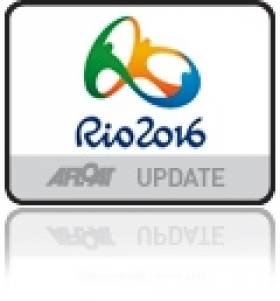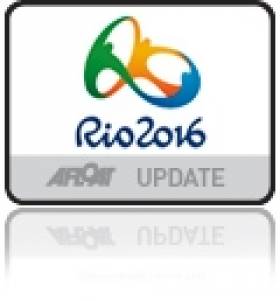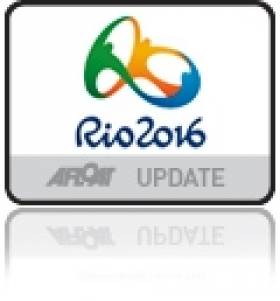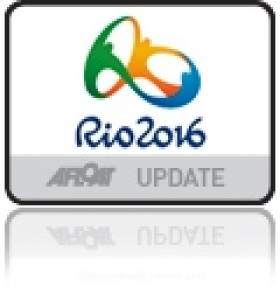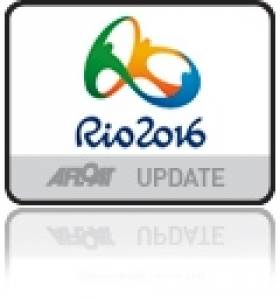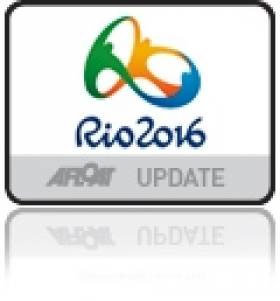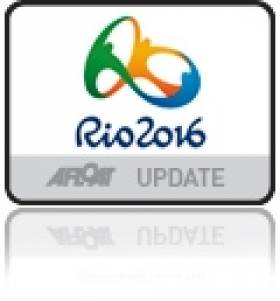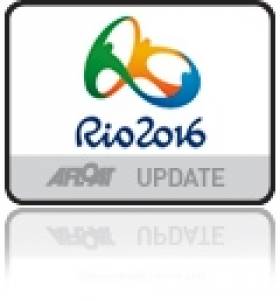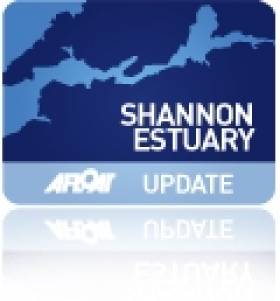Displaying items by tag: Rio de Janeiro 2016
Former World Sailing CEO Says 'I Was Fired For Trying To Move Rio Event'
The former CEO of World Sailing says he was fired for pushing to get rid of polluted Guanabara Bay as the sailing venue of the Olympics in Rio de Janeiro, according to an Associated Press report this morning.
Peter Sowrey tried to change the venue, or at least have a "B plan" but says "I was told to gag myself on the subject."
Sowrey proposed moving the event to Buzios, a coastal resort about 160 kilometres (100 miles) from Rio that has been host to large sailing events. Of course, it's too late now for that change.
"The board felt I was way too aggressive," Sowrey said. "They basically voted me out. I didn't resign. The board finally told me to leave."
Sowrey said looking at Guanabara Bay on "fact-based, data-driven models we would never consider sailing in that quality of water."
The Associated Press has much more on the story here
#rio2016 – More than 320 sailors from 34 nations will compete at the first test event of the Rio 2016 Olympic and Paralympic Games from 2-9 August from the Marina da Gloria.
The Aquece Rio – International Sailing Regatta 2014 is set to be the largest Olympic classes sailing competition ever held in Brazil and many of the world's top competitors are ready for the test.
Organised by Rio 2016 and Confederação Brasileira de Vela (CBVela) in conjunction with the International Sailing Federation (ISAF), the regatta will test the field of play, equipment, workforce, systems and procedures two years out from the Olympic Sailing Competition.
Five race courses will be assessed during the course of the regatta with three areas – Ponte, Escola Naval and Pão de Açucar –situated inside Guanabara Bay and the other two - Copacabana and Niterói – located outside the bay in open water.
The Test Event will be the first opportunity to start developing the skills of the 1,000+ workforce who will be critical to the success of the Rio 2016 Olympic Sailing Competition. The on water race committee teams are one such group and their training programme will get underway under the guidance of International ISAF officials from Brazil and overseas.
Media coverage and results from the Aquece Rio will be delivered by the Rio 2016 team and ISAF through www.aquecerio.com/en/competicoes.php and http://www.sailing.org/2014-test-event.php
Each nation is entitled to two places per Olympic event for the Aquece Rio – International Sailing Regatta and two teams will have full squads racing on Rio's water.
The British and Brazilian teams will have 20 boats and 30 sailors competing throughout the week however the Brazilians will benefit from it being their home waters.
World #1 49erFX team Martine Grael and Kahena Kunze (BRA) will be the favourites in the 16-boat fleet having finished on the podium at 11 of 14 ISAF ranked regattas since jumping in the skiff. The pair are local to Rio but won't be taking anything for granted, "It is very hard to tell what is going to happen. We have to be prepared for everything and whatever comes, will be.
"We train here but racing is always different. I expect a low number of sailors but with a high level so it will be the perfect training session."
As Grael predicts the level is set to be high in the 49erFX fleet with 2013 World Champions Alex Maloney and Molly Meech (NZL) within the fleet. Speaking on their blog the pair said, "The main goal for the trip is to get accustomed to being in Rio, and the sailing conditions here. This competition is the first run-through event for both the organisers and sailors, and it will be great to get to know the rough course areas planned for the 2016 Olympics. After a great break, we are ready to get back into and learn as much as possible."
Strong teams from Argentina, Australia, Austria, Great Britain, Germany, Japan, Netherlands, Sweden and the USA will join the Brazilians and Kiwis on the 49erFX start line in Rio.
Fresh from 49er Open European success Peter Burling and Blair Tuke (NZL) will spearhead the 19-boat 49er fleet. The Kiwis have won five consecutive 49er regattas including two ISAF Sailing World Cup regattas, one World Championship and two Open European Championships.
The Aquece Rio – International Sailing Regatta will be their first opportunity to showcase their talent on Olympic waters but they will be joined by a small yet competitive fleet that includes London 2012 gold medallists Nathan Outteridge and Iain Jensen (AUS) and consistent British racers Dylan Fletcher and Alain Sign.
The Laser Radial fleet features 28 sailors and includes six of the world's top ten, including World #1 Marit Bouwmeester (NED).
Many of the Laser Radial competitors have Rio experience under their belt and that includes Annalise Murphy (IRL) who, like many of the competitors, isn't focused on the end result, "I am really looking forward to experiencing some proper fleet racing in Rio, I think racing two years out from the Games is going to be hugely beneficial in my preparation for the Olympics.
"I hope to get a better understanding of Rio, get a feel for the bay and the different conditions we will experience. Everything is important to get used to, the wind, the tide, the food and finding a gym.
"I came to Rio for three weeks training last year and experienced a big mix of conditions; it is pretty tidal so it is going to be a tricky event. I think the racing will be very competitive; nearly everyone is here for this regatta so it will be a very high standard. I am looking forward to going out and enjoying myself on the water."
Joining Bouwmeester and Murphy in the fleet will be World #2 and ISAF Sailing World Cup Hyeres victor Evi Van Acker (BEL), ISAF Sailing World Cup Qingdao gold medallist Dongshuang Zhang (CHN) and World Cup Miami winner Paige Railey (USA).
The Laser fleet will be the largest in Rio with 36 boats registered to race. Top competitors include home favourite and 2013 Laser World Champion Robert Scheidt (BRA), Australia's Tom Burton, World #2 Nick Thompson and strong Kiwi sailors Andy Maloney and Sam Meech.
The Nacra 17 fleet will see 16-boats on the start line and includes a number of leading teams. 2013 World Champions Billy Besson and Marie Riou (FRA) will be joined by the experienced Darren Bundock and Nina Curtis (AUS), World #2 Ben Saxton and Hannah Diamond (GBR), Franck Cammas and Sophie de Turckheim (FRA) and World #3 Thomas Zajac and Tanja Franck (AUT).
Giles Scott (GBR) is the Finn class' man of the moment having won nine of the last ten regattas. Scott has won his last five regattas and will be the one to beat in Rio but strength in depth is present throughout the fleet. Brazil's Jorge Zarif and Bruno Prada will have home water advantage whilst World #2 Bjorn Allansson (SWE), World #3 Thomas Le Breton (FRA) and the seasoned Jonathan Lobert (FRA) and Pieter Jan Postma (NED) will provide stern competition.
Aquece Rio - International Sailing Regatta 2014 is the first of two test events with the second following in 2015, provisionally scheduled for 12-22 August.
#TrofeoSofia – The harsh reality of the mid week split hit home this morning as the Trofeo Princesa Sophia fleet was separated into gold and silver fleets for the next stage of the regatta, the finals series. Only Ireland's James Espey still has a chance of medal race participation come Saturday, for everyone else on the Irish Olympic Sailing Team it is time to salvage some honour in Palma's silver fleets.
But for both of Ireland's Laser sailors today's third day of racing never happened with the 2.4mR, Laser, Laser Radial and RS:X's unable to race due to light winds on their course. This left Ireland's Espey and Annalise Murphy ashore contemplating a truncated series tomorrow.
But London 2012 team–mates Ryan Seaton and Matt McGovern did get to race – and in breeze – the Belfast duo taking a second in the only race of the day for the 49er silver fleet to lie 44th from 79. At the top of this highly competitive skiff fleet, 2013 49er World Champions Peter Burling and Blair Tuke (NZL) have moved into the lead.
In the 49erfx class, Andrea Brewster and Saskia Tidey, also sailing in silver, lie 44th.
Dublin Bay sailor Ross Hamilton is 65th overall in the Finn class.
Full results here
OCI Seek Supporting Evidence from ISA on Olympic Sailing Waters Pollution
#oci – The Olympic Council of Ireland (OCI) has responded to claims by the Irish Sailing Association that the 2016 Olympic waters are a 'health hazard'. OCI president Pat Hickey, who is a member of the International Olympic Committee's, Rio 2016 Coordination Commission told the Irish Times he has not heard of this level of pollution. The OCI is to seek supporting evidence from the ISA about the problem.
Sailors, who have been to training camps in and around the Olympic course, have described water that was heavily contaminated with sewage and believe it is a health risk.
In a statement released yesterday, the OCI said they will address the Irish sailors' concerns. "The Irish Sailing High Performance Team did not consult with the Olympic Council of Ireland on this matter so the OCI would need to ascertain the full extent of their concerns.
The Irish Times has much more on the story here.
Build Up to 2016 Olympic Regatta Begins with 'Aquece Rio' Test Event at Marina da Glória
#olympic – Ireland's Olympic sailing crews need no reminder that the Rio de Janeiro Olympics is getting closer. The Notice of Race for the Aquece Rio – International Sailing Regatta 2014 has been published.
Aquece Rio is the first of two 'Test Events' for the Rio 2016 Olympic Sailing Competition and will welcome sailors across the ten Olympic sailing events from 2 to 9 August 2014. The regatta venue is the Marina da Glória with racing taking place inside and outside the Guanabara Bay.
Each ISAF Member National Authority (MNA) (in Ireland's case the Irish Sailing Associatiion (ISA) is entitled to enter two boats in each event and must register with Rio 2016 not later than 1 May 2014.
Rio 2016 Olympic Sailing Competition
The Rio 2016 Olympic Sailing Competition will take place at the Marina da Glória, Rio de Janeiro, Brazil and will feature 380 athletes competing across ten events.
Racing is scheduled to take place from 8-18 August 2016 and the competition format for all events is fleet racing.
Brazilian Government Move to 'Reinsert' Star Keelboat for Rio 2016 Olympic Regatta
#star – The President of Brazil, Dilma Rousseff, has moved to have the Star keelboat reinstated as an Olympic class at the 2016 Olympic Games in Rio de Janeiro.
Brazilian ambassadors from around the world are seeking support from nations to help them reinsert the oldest and most traditional class back in to the Games in three years time.
The legendary class lost its status after a controversial decision by the world body of sailing, ISAF in 2011. It was thought that the venerable 100–year–old design sailed its last Olympic regatta at London 2012 but now there is new hope for the much loved craft.
In a letter from the Embassy of Brazil, date January 16th and seen by Afloat.ie, the Brazilian Government says it firmly endorses the request noting that out of the 18 sailing medals Brazil has won, six were in the Star class.
The embassy says the new ISAF president Carlos Croce, has already 'requested to the International Olympic Committee (IOC) the inclusion of an 11th sailing class in the next games to accomodate the Star'.
The letter outlines the minimal additional budgetary cost involved and how it would 'strongly contribute to strengthening the positive spirit surrounding this unprecedented event held in in Brazil'.
It is expected the matter will come before the next meeting of the executive committee of the IOC to be held in Sochi on February 2.
Last July, Afloat reported that Brazil had still to make up its mind to back the boat.
Annalise Murphy to Compete in Laser Radial Worlds, China
In China, Laser Radial European Champion Annalise Murphy from the National Yacht Club is preparing for the Women's Laser Radial World Championships starting in Rizhao City tomorrow and finishing next Monday. It's an important regatta where she will meet China's Lilja Xu, the Olympic gold medal winner from London 2012. The regatta site is forecasting winds of 16-24km/h for the start of the regatta at Rizhao.
Dublin 49ers Expected for Ballyholme Nationals
#49er – For the first time in many years, Ballyholme Yacht Club (BYC) orgsnisers on Belfast lough are hoping for double figures for the Mackey Opticians sponsored Irish 49er nationals, especially if a few of the Dublin fleet travel for the October 5th event.
It will be a very busy weekend at Ballyholme bay with Race 4 of the Autumn Series on Sunday morning and Race 1 of the BYC Icebreaker series on Sunday morning.
London 2012 Olympians Ryan Seaton and Matt McGovern (currently competing at the 49er worlds in Marseille, France) have been working hard to organise boats for all the competitors.
There will be practice racing on Friday 4th for those who haven't stepped on a 49er in a number of years or ever before.
The briefing will be at 10:30 on Saturday morning with races starting as soon as possible afterwards. We hope for 6 quick races on Saturday with 3-4 on Sunday starting earlier. Sailing instructions will be available at the briefing and will be dependent on the weather conditions.
There is a perpetual trophy available for the winning 49er and Mackey Opticians are donating two pairs of polarized sunglasses (value up to £150 each) for the winning pair.
#rio – Although a decision isn't expected this summer, attention from the event has led to speculation the former Star class sailboats will be reinstated for the 2016 Summer Olympics in Rio, Brazil.
The Star class' governing body is stating the earlier news of the event's reinstatement in the 2016 Olympics is "still just a rumour." Star class sailing was removed from the 2016 Olympics line-up in May 2011.
International Star Class Yacht Racing Association president Bill Allen said in a statement that Brazil's Olympic committee "may request an 11th medal for sailing" but no decision was made and probably won't be until this summer at the earliest. He will keep Star class members informed of new developments, Allen said.
The source of the speculation might be that Brazil's Robert Scheidt won the 2011 and 2012 World Championships in the Star class along with the silver medal at 2008's Beijing Olympics and the bronze medal at 2012's London Olympics.
The reports on various U.S. websites state International Olympic Committee regulations allow the host country to add one event of its choosing if the country itself picks up the tab. However, Allen says that is not accurate.
Since it debuted at the 1932 Olympics in Los Angeles, the Star class has been absent from only one Olympics, Montreal in 1976. It was dropped prior to the 2000 Olympics in Sydney but then reinstated.
The Star class often is called "the fleet of champions" because many Olympic and world championship sailors finish their careers in that class of boat.
The inaugural CNM Estates UK Star Championships was held 18-20 January in cold and snowy conditions. Xavier Rohart of France and Serge Pulfer of Switzerland took the gold medal with 17 points.
The winners were presented with the Royal Thames Yacht Club "Fine Art Sails Regatta" by Admiral Sir Mark Stanhope.
The team of Max Treacy and Anthony Shanks of Ireland finished second with 35 points while Andrew Simpson and Iain Percy of Great Britain totalled 37 points for third place in the event, held in the waters of the Royal Victoria Docks outside London's ExCeL exhibition centre.
Other cities that have expressed interest in holding their own Fine Art Sails event are Moscow, San Francisco, Auckland, Stockholm and Baku, the capital of Azerbaijan and largest city on the Caspian Sea.
The event attracted top international sailors, including many European and World title holders. They included triple Olympic medallist Iain Percy, double Olympic medallist Andrew Simpson, Beijing gold medallist Pippa Wilson, London silver medallists Luke Patience and Stuart Bithell, and Athens bronze medallist Xavier Rohart.
The mainsails were unique pieces of art created by internationally famous artists such as: Julian Opie, EINE, Jaime Gili, INSA, Eley Kishimoto, Wendy Taylor, Christian Furr, David Begbie, Pam Glew and Goldie.
"This is a totally new venue for artists to display their work. It's an opportunity to show off their artwork to the public and reach an audience they haven't reached before," Ross said.
London 2012 Weighs Anchor off World Famous Golf Course
#OLYMPIC SHIP - A 82,562 dwt dry bulk-carrier, London 2012, weighed anchor today having recently docked at the Aughinish Alumina jetty, on the Shannon Estuary, writes Jehan Ashmore.
The Liberian flagged vessel which has a draft of more than 14m had docked at Aughinish, one of six terminals operated by Shannon Foynes Port Co, near Askeaton, Co. Limerick. The facility is where large sized ships can reach by plying the deep waters of the mid-western waterway that has some 500sq km of navigable estuary.
Following completion of operations of London 2012 at the Aughinish terminal, which is the largest alumina refinery in Europe, the vessel departed the jetty dedicated to importing bauxite to the Russian owned RUSAL plant, and proceeded to anchorage beyond the mouth of the Shannon.
The 229m long X 32m beam vessel had anchored some 3 nautical miles offshore of Ballybunion. The west Kerry venue is another place strongly associated with sport through its world famous golf course, situated on a spectacular stretch of coastline overlooking the Atlantic Ocean.
London 2012 and her sister Beijing 2008, belong to a fleet of approximately 70 vessels, totalling a capacity of 8 million deadweight tons (dwt) and are managed by Tsakos Columbia Shipmanagement (TCM) S.A. of Greece.
The Athens based TCM was only established in July 2010, as a joint venture between Tsakos Shipping and Trading S.A. and Schoeller Holdings Ltd, the owner and operator of Columbia Shipmanagement Ltd.
No doubt her Greek owners will make an opportunity for a vessel to continue in the Olympic spirit by sporting the name Rio de Janeiro 2016. As for golf fans, they too can look forward to the return of the sport in these Games.



























